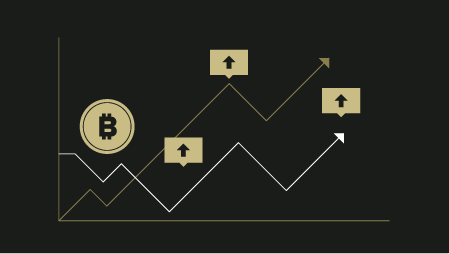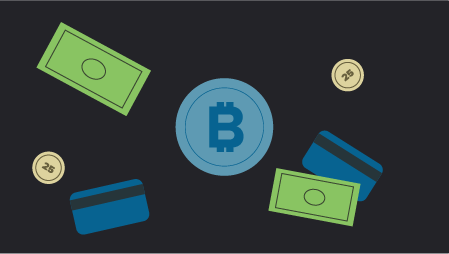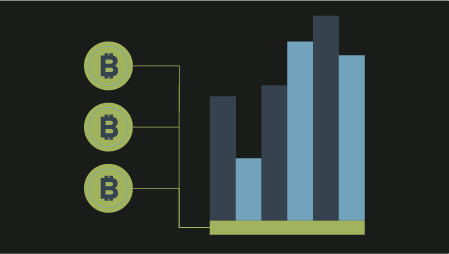Ready to learn Blockchain? Browse courses like Blockchain for Finance Professionals developed by industry thought leaders and Experfy in Harvard Innovation Lab.

Source: Descryptive
In the past year, the excitement surrounding cryptocurrency price surges and initial coin offerings (ICOs) helped many blockchain startups fund and launch valid projects that solve critical problems. But the same hype also attracted many shady players into the space, companies that tried to make windfall cash by adding blockchain to their name or by bringing celebrities on board to publicize their crypto-tokens.
It is therefore natural to feel a little suspicious when you hear Facebook’s CEO hint at cryptocurrencies in his New Year’s Resolutions post or major social media company Telegram announce a blockchain-based upgrade and a soon-to-be-launched ICO.
But while many of the industries professing to make revolutionary use of distributed ledgers hardly offer a relevant use case, social media is one of the fields that can benefit immensely from blockchain and tokenized economies.
The benefits of blockchain-based social media

Social media networks already handle tons of information. But how they collect that information and use it continues to remain a mystery to the billions of users that use these platforms every day. The uncontested control over user data gives social media companies an unfair advantage.
They can manipulate the content users consume without gaining their consent (Facebook has done this on several known occasions). They can sell users’ data to third parties or use it for monetization purposes without their consent or without giving them a share. If they decide to start making evil uses of the data (such as handing it over to oppressive regimes), users won’t be able to do anything about it. And when they become hacked, users lose all their data without having had a chance to defend themselves.
Social media data is where blockchain can help. In a nutshell, blockchain is a distributed ledger or database. It was invented to support cryptocurrencies such as bitcoin, digital money that doesn’t rely on third-party brokers and gatekeepers to perform transactions between two parties. However, the technology quickly found its way into many other fields such as supply chains and gaming, where transparency and true peer-to-peer exchange of digital information would be beneficial.
As opposed to traditional databases, which are owned, stored and maintained by a single organization or company, blockchains are replicated across thousands of computers owned by unrelated parties. This makes it impossible for any single entity to tamper with the ledger’s information to their advantage. Cryptography secures data stored on the ledger and makes sure only its true owner will be able to use it. That’s why when you store bitcoins on the blockchain, only you (or anyone holding the private encryption keys, technically speaking) can transfer it to another party.
When you port social media to the blockchain, the immediate benefit users will gain is exclusive ownership of their data. This means Facebook will no longer be able to obscurely store user interaction data on its servers or peek into the content of chat feeds without user consent. Everything will be encrypted and stored on the blockchain. Alternatively, users can store the data on an off-chain store such as a cloud storage provider of their choosing like Google Drive or Dropbox. Since the data is already encrypted with the user’s public key, those cloud providers won’t be able to read the contents (but they will be able to block access to it, the trade-off for adding a little centralization to the mix).

A second benefit of blockchain-based social media is the fair distribution of revenue. Since the social media company no longer stores users’ data, it won’t be able to mine their data and manipulate the content they view for the sake of its own bottom line. Meanwhile, as users have the ownership their data, they will be able to choose who gets to access it, and be compensated for it. For instance, users can opt to share their data with the social media network’s advertiser partners and view ads in exchange for cryptocurrency rewards. Advertisers are already paying considerable sums to gain access to user data. They’re only paying it to the wrong people (the social media companies). In the blockchain model, the true owner of the data will receive a good part of that payment.
Finally, the last benefit I’d like to highlight the advantage of running on tokenized economies. Blockchain applications have their own crypto-tokens. These tokens are distributed during the application’s ICO (aka token sales). Users earn them by sharing their data and spend them to use the services of other parties on the network. Aside from their monetary value, tokens give their holders a partial ownership and stake in the platform. Since crypto-tokens are available in limited supplies, as more people join the platform, the value of the tokens rises, giving every user on the platform—especially the first believers who bought tokens in the ICO—a share of the added value proportionate to their holdings. This is in direct contrast with centralized social media platforms, where only the owners of the company benefit from the platform’s growth and network effect.
Given all these benefits, I’d doubt that a company like Facebook would endorse the concept of tokenizing its platform because it would be a direct challenge to its business model. But someone ought to do it.
What are the challenges?
Nothing is without tradeoffs, including blockchain-based social media. The technology is still nascent and we have yet to discover all its aspects (just as we did with traditional social media).
For one thing, blockchains are not known for their speed. The number of transactions that a blockchain can handle is considerably smaller than the cloud, since everything must be verified and confirmed by an acceptable number of nodes. A blockchain-based game called CryptoKitties managed to clog the ethereum blockchain with its traffic, which is insignificant compared to the traffic on Facebook and Twitter.
Moreover, blockchain transactions consume a lot of power, making the technology economically inefficient for networks where users share millions and billions of posts every day.
Another challenge that stands in the way of blockchain social media is transactions fees. Every modification to the ledger requires the sender to pay a cryptocurrency fee, which varies based on the value of the token and the number of nodes supporting the network. Imagine having to pay a small amount for every tweet you make. It could possibly lead to less interactions with the platform.
(I personally think transaction fees aren’t a bad thing. Imposing a fee on every post might encourage people to be more considerate and responsible about the content they create, knowing there’s a limited supply.)
Developers and scientists are exploring solutions to these challenges, such as using side chains to speed up transactions or DAG chains to remove transaction fees. However, a stable and reliable solution has yet to emerge.

Aside from technical challenges, blockchain will also cause a moderation challenge for social media. Currently, social media companies such as Facebook and YouTube have armies of moderators who work in conjunction with machine learning algorithms to spot and remove violence, pornography and other inappropriate content from their platforms. They can do this because they store everything on the cloud and have exclusive control on the content their respective platforms contain. There will be no means for centralized moderation on decentralized social media platforms and it will all be up to the community to make sure the network remains devoid of abusive content.
Updating software will also be a challenge. Facebook can update its software whenever it wants, and all users will be access to the latest version on their next login to the website or by downloading the latest version of the app. However, when a decentralized application wants to apply modifications, it will have to earn the consent of its supporting parties, many of which may have conflicting interests. This can lead to prolonged debates and delayed updates. We’ve already seen this scenario play out in ethereum’s DAO fiascoand bitcoin’s unsuccessful Segwit2x fork.
However, it’s still not clear if these challenges will be ultimate barriers to the emergence of blockchain-based social media. Many of the problems we foresee are inherent of the centralized world we live in today. Maybe they will become nonexistent in a world where a strong majority of the involved users have a stake and sway in keeping our social media platforms secure, clean and reliable.



